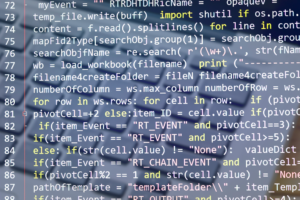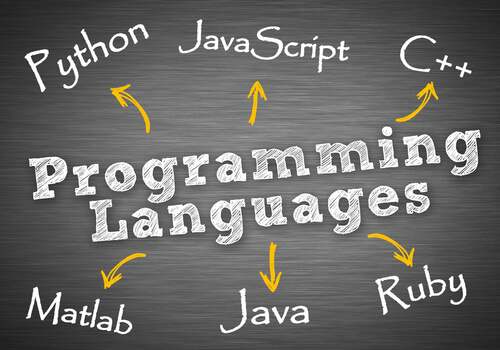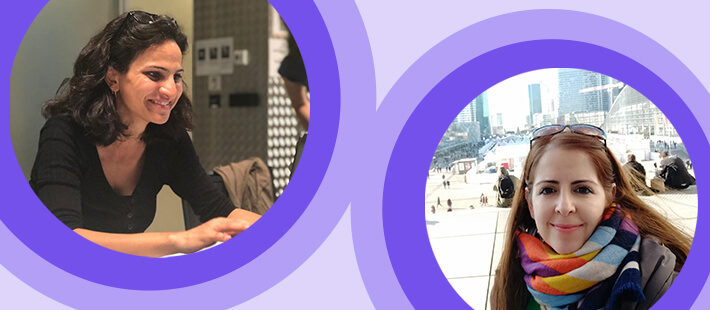The number of people trying to learn to write computer code is growing – and for good reason – software developers are in shortage in both the UK and the USA and are amongst the most sought-after profiles in both countries; according to a recent survey by Tech City UK, there are over 1.5 million digital tech jobs in the UK and the sector is still growing fast – so fast in fact, that there is a skill gap in the market. This means that the unemployment rate amongst UK developers is less than 2%, which is an incredibly low rate. Meanwhile, across the other side of the pond, the US Bureau of Labor Statistics estimates that the demand for software developers will grow by up to 32% by 2020.
Because computer code looks strange when you are not familiar with it, finding out how to learn a coding language and what to do with it might seem very daunting at first – that’s quite normal, and the good news is that you have come to the right place! First of all, you need to realize that learning computer code is no harder than learning how to read and write – you know those already, so they seem easy to you now!
What is computer code and what is it used for?
 Computer codes are our way of talking to machines. Kind of like Doctor Doolittle except with robots. Computer programmes are basically a list of instructions that a computer will carry out when the programme is executed.
Computer codes are our way of talking to machines. Kind of like Doctor Doolittle except with robots. Computer programmes are basically a list of instructions that a computer will carry out when the programme is executed.
To learn how to code you have to learn the rules of the programming language you want to learn, so that you can get the computer to do what you tell it when you run the programme. Computer programmes are quietly running things behind the scenes of our modern, hi-tech world, from websites, apps and computer software to computer aided design and manufacture. Computer code is responsible for making all these things work. Not only that – all automated machinery relies on programmes for the instructions it must execute.
“Think about all the machines that you know – they have all been programmed by humans. Even if machines and computer code seem scary or inaccessible, all of this can be learned and has been made by people like you.” Emily Reese, Web Developer and Teacher at OpenClassrooms.
In fact, the first record of a programmable machine goes back to 9th century Baghdad, when the Banu Musa brothers invented an ‘Automatic Flute Player’. Back then they were like magicians – and today’s modern programmers are also kind of like magicians – they can do fantastic things, such as make machines work without touching them, create amazing apps that will be used by millions of people and publish dynamic websites that will be read by folk across the globe.
So how can I learn to write code?
You don’t need to spend lots of money to do a computer science university diploma, although that sure is one way to start learning. Using online resources is a great way to learn, there are also numerous books and ebooks out there to help you. On top of that there are online communities and help videos for added support – all this makes the internet a great place to learn about…the internet! The OpenClassrooms website has all of these resources available for various computer codes, so all you need to do is choose a programming language and get started!
But which programming language should I start with?
It depends what you want to do with your newfound skills. If you are interested in creating the visual part of websites (that’s frontend web development) then HTML and CSS are a great place to start, followed by JavaScript. If you are interested in back end web development (the behind the scenes stuff) then Python is a good place to start, as it is user-friendly and can be used widely.
“If you’re not sure where you want to end up, start one of our learning paths and let it guide you through a flow of courses and projects, so you don’t have to worry about where you’re going but can concentrate on learning.” Emily Reese, Web developer and Teacher at OpenClassrooms.
Some sound advice
Once you have chosen a language, stick to it, practice every day and try to build simple projects with it. Just 30 minutes a day is enough to get you learning computer code! Signing up to a learning platform will give you structure, whilst joining a coding community can be helpful to keep you motivated. In the end, it will become natural to you and once you have learned one, it will be easier to go on to another programming language.
We know how to teach you

OpenClassrooms can offer you structured lessons, a community and can even provide a mentor to help you obtain a graduate diploma on one of our online paths.
If that sounds too ambitious, remember that here at OpenClassrooms, we have successfully helped people from all walks of life to learn how to code, earn a diploma and then get their dream job.
“I’ve always had difficulty with university-style lectures, but thanks to you and your ultra-detailed, user-friendly courses… I am finally seeing the light at the end of years of struggling and wasted time… so THANK YOU… TRULY, MADLY, DEEPLY!” Kevin, an OpenClassrooms graduate, who went from sleeping rough to his first programming job as a junior web developer through his dedication to the OpenClassrooms path he followed. His next step? Game Developer!
We love to see our students spread their wings, and we also recognize the valuable input they have given us. Join our community and let’s do this together!
“I have had tens of thousands of people take my courses, and the feedback I get from everyone of them has helped us learn how to better teach you.” Emily Reese, Web developer and Teacher at OpenClassrooms.








I really would like to to learn programming given a chance. Your lectures will be appricuated
How do I start? What is required?
You just need to follow this link http://www.openclassrooms.com.
How do I access the course and how much is it?
Hello,
You can start by browsing our courses here: http://www.openclassrooms.com/courses or our learning paths here: http://www.openclassrooms.com/paths.
Our courses are free to follow and our paths range from €300 to €500 per month.